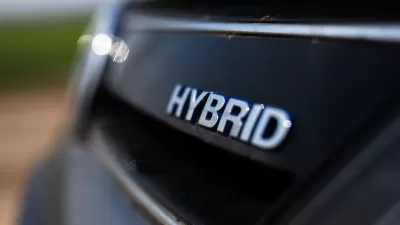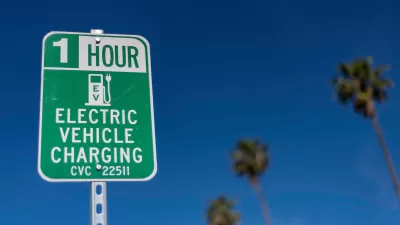At one time in the 1900s, a third of cars in major cities were powered by electric motors. Today, only about 1% of cars are fully electric. Why did we end up with gasoline-powered cars?
In the early 1900s, a series of unfortunate business events drove the country's largest electric vehicle carmaker -- called the Electric Vehicle Company -- into bankruptcy, and it devastated the electric car industry.
"Investors, soured by their experience with the E.V.C., swore they'd never put money into the industry again, and in the lull in electric-car development that followed, gasoline-car companies improved their technology and made their vehicles cheaper", writes Maggie Koerth-Baker of The New York Times. "Over the next 20 years, Americans formed a new idea of what a car was. And from that point on, right up to today, it was hard to get them to try anything else."
So will the US ever get back to electric cars? Koerth-Baker thinks it's possible to change both the infrastructure and culture that supports gasoline-powere cars: "The trick is to not expect people to jump straight from all-gasoline to all-electric. What's necessary is a transitional step that makes electric cars operate more like the cars we're used to driving... [and] hybrids will ultimately help us make that jump."
Thanks to Daniel Lippman
FULL STORY: Why Your Car Isn’t Electric

Planetizen Federal Action Tracker
A weekly monitor of how Trump’s orders and actions are impacting planners and planning in America.

Map: Where Senate Republicans Want to Sell Your Public Lands
For public land advocates, the Senate Republicans’ proposal to sell millions of acres of public land in the West is “the biggest fight of their careers.”

Restaurant Patios Were a Pandemic Win — Why Were They so Hard to Keep?
Social distancing requirements and changes in travel patterns prompted cities to pilot new uses for street and sidewalk space. Then it got complicated.

DC Area County Eliminates Bus Fares
Montgomery County joins a growing trend of making transit free.

Platform Pilsner: Vancouver Transit Agency Releases... a Beer?
TransLink will receive a portion of every sale of the four-pack.

Toronto Weighs Cheaper Transit, Parking Hikes for Major Events
Special event rates would take effect during large festivals, sports games and concerts to ‘discourage driving, manage congestion and free up space for transit.”
Urban Design for Planners 1: Software Tools
This six-course series explores essential urban design concepts using open source software and equips planners with the tools they need to participate fully in the urban design process.
Planning for Universal Design
Learn the tools for implementing Universal Design in planning regulations.
Heyer Gruel & Associates PA
JM Goldson LLC
Custer County Colorado
City of Camden Redevelopment Agency
City of Astoria
Transportation Research & Education Center (TREC) at Portland State University
Camden Redevelopment Agency
City of Claremont
Municipality of Princeton (NJ)




























